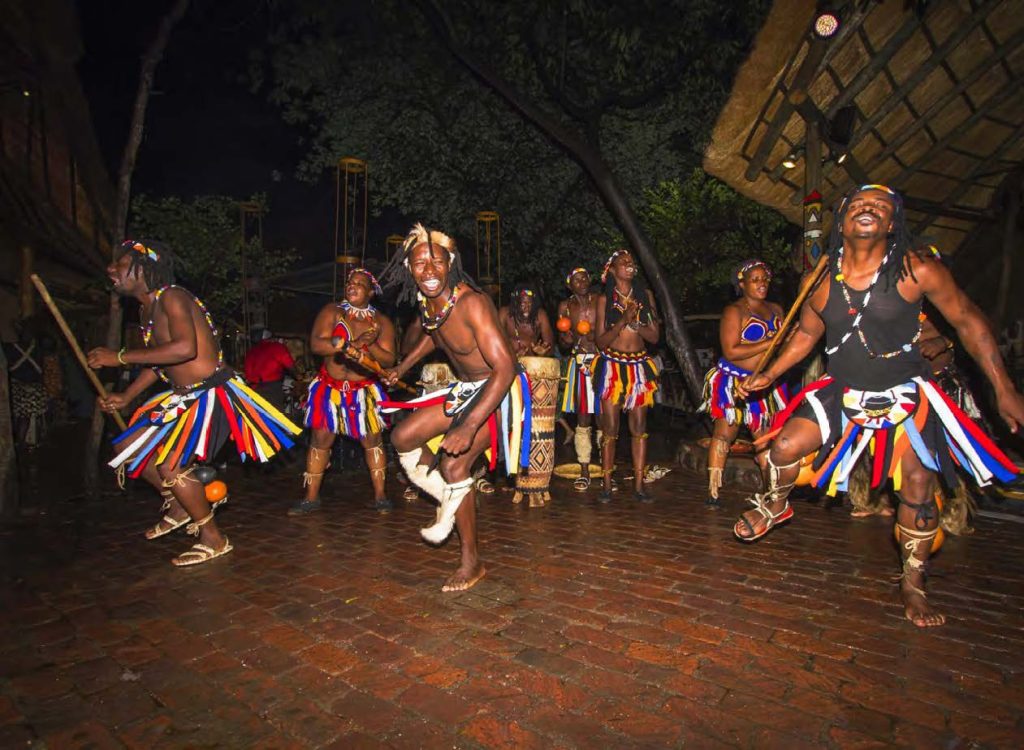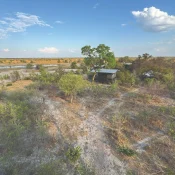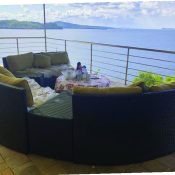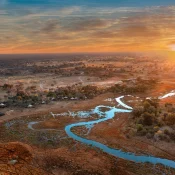
The Ministry of Environment, Climate, Tourism & Hospitality
- There are countries with a developed tourism industry, those with a developing industry and those that would want to develop one. Relative to this, which category could we place Zimbabwe under in your opinion?
Destination Zimbabwe is a top tier destination in terms the variety of attractions and facilities on offer. We are however a developing destination that needs a considerable amount of investment in terms of infrastructural capacity. In this regard we have embarked on a rigorous product Development Strategy and have put investment promotion at the pinnacle of our objectives.
2. Many players in the tourism sector took a serious knock as a result of the Covid-19 pandemic. Some businesses actually went under and some are on the brink of bankruptcy and its particularly the latter who would want some form of support to continue contributing as they used to pre-Covid. What support initiatives have you introduced to help them back on their feet? Tax rebates? Incentives?
At the height of the Covid-19 pandemic, central government through the Ministry of Finance and Economic Development extended a ZWL $500 million loan guarantee scheme that was designed to assist the sector on its recovery path. Later on a variety of tax breaks and rebates were introduced in an effort to cushion the sector. The Value Added Tax was relaxed for players in the sector for a lengthy period while duty was exempted on all capital goods.
3. When natural disasters like Covid-19 strike it is almost always the tourism industry which suffers the most. What have you learnt from the situation and what are you doing or have done to proof the industry in the event of such a disaster occurring again? A fund etc.?

Government developed comprehensive Health and Safety protocols to guide the operations of the Tourism Sector, in order to protect travelers and employees in the sector and to inspire confidence in external markets. These were coupled with a solid response plan through the department of Civil Protection Unit. Government will always be committed to intervening whenever there is a disaster and funding will be availed to the sector should the need arise in future.
4. Zimbabwe is the first African country to have a National Tourism Satellite Account which is a cutting-edge feat in itself. How do you see this innovation moving the tourism industry forward after the huge slump?
The Zimbabwe Tourism Satellite Account is a key instrument meant to improve the measurement of the performance of the Tourism sector. As you may know and appreciate, the Tourism Satellite Account is an internationally recognized tool that is able to holistically account for the performance of the tourism sector in a given economy. It is one of the anchor projects outlined in the National Development Strategy (NDS1), which the Ministry has to deliver on, as part of our results chain framework. It is therefore imperative for stakeholders to embrace modern technologies in data collection to ensure the timeous availability of information to update the Tourism Satellite Account. Further, the TSA Report has availed critical information on the value of the Tourism economy which should energize us to work hard in our pursuit of the sectorial target to reach a US$5 billion economy by 2025. The results presented indicate that as at 2018, the Tourism economy was estimated at US$1 964 592 880, hence our work is cut out as we need to achieve a two-fold growth target to achieve a US5Billion Tourism economy by 2025.
5. Industry observers have noted that African destinations have to for a time prioritized domestic tourism and that is what is going to pave way for international tourism. What programmes/campaigns/initiatives have you introduced to promote domestic tourism?
As destination Zimbabwe we had always focused on the international tourist this calamity gave us an opportunity to effectively focus on domestic tourism promotion. The Covid-19 pandemic wreaked havoc an brought the sector to its knees and we needed to find innovative ways to help tourism recover and we realized that the only way we could have sustained the sector was through amplifying domestic tourism. We immediately crafted a National Tourism Recovery and Growth Strategy which was to be anchored by a carefully rolled out and managed domestic tourism campaign. This brought about the ZimBho domestic tourism drive. This campaign helped to boost revenue streams of domestic businesses as a complement to government subsidies. In the past, before the COVID-19 pandemic, destinations that were deemed successful the world over were supported heavily by their domestic market constituting more than 60% of business. Whilst all destinations compete for International Tourism as it brings in new money into the economy (Forex), domestic tourism assists in inducing expenditure and circulating wealth in the economy. Furthermore, domestic tourists become destination ambassadors, assisting in promoting the destination and also encouraging international tourists who are usually keen to visit areas visited by locals. Domestic tourism further expands the chain and helps in building national pride at the same time promoting national understanding among locals.
6. Other African countries like Rwanda and South Africa are on a major tourism drive to put their nations up there with the major global players in the tourism sector. How are you planning to position Zimbabwe as a tourist destination of choice for international travelers as a ministry?
We have launched a very robust National Tourism Recovery and Growth Strategy which outlines a clear and concise pathway that will guide us as we seek to create a . The strategy is anchored on our national vision which is to be a premier international tourist destination based on the judicious and sustainable exploitation of our unique human and natural resources.
It further seeks to re-establish lost contacts with the local, regional and international tourism source markets. The Visit Zimbabwe Promotion Campaign will see a warm invitation being extended to the world to visit Zimbabwe. Further to this, we have introduced a drive to promote MICE tourism as this is one sure way of reintroducing the much needed regional and international tourist receipts.
It is good that your ministry also covers issues to do with the environment and green initiatives. At what stage are we in/at as a country in relation to sustainable tourism? What is being done to raise awareness?
Our tourism sector has already adopted sustainable tourism approaches. The initiative comes amid the realization that the sector could benefit and contribute more to the economy through sustainable practices. The environmentally oriented market segments are growing at a very high rate, for example, interest in ecotourism experiences is growing by 25% to 30% per year and cultural tourism at 10% to 15% per year. (UNWTO).
As a ministry, we have embarked on the Sustainable Tourism Programs. The program is currently premised on reducing negative impacts on the environment, maximizing social and economic benefits for the local community, and enhancing cultural heritage. This has been achieved through major programs being implemented at the national level which include;
Sustainable Tourism Guidelines
To ensure that sustainable practices are going to be undertaken by the operators, the Zimbabwe Tourism authority is in the process of developing sustainable tourism guidelines. These include minimum guidelines that are to be incorporated into the registration and inspection standards which are legally binding. To raise awareness on this the sector has held several workshops with operators on the benefits of going green as a sector
Green Certification
Our own tourism businesses have been certified by other renounced certifications such as Green Tourism Business Africa which partnered with the Zimbabwe Tourism Authority Through this programme thirteen businesses in Victoria Falls and Hwange were certified with Gold, Silver and Bronze. Certification was based on a broad range of practices ranging from management, staff welfare, ethical procurement, social responsibility, waste management and resource efficiency.
Green Exhibitor Awards
Green Exhibitor Awards were launched in 2017 during our own local travel fair, Sanganai/Hhlanganani. The awards were being introduced to recognize, incentivize, appreciate and celebrate those operators embracing the green tourism concepts in their businesses. Assessments are stand based.
Sustainable Tourism Quiz
For sustainable tourism to be successful it really needs participation from all levels including the younger generations.
As part of education and awareness on Sustainable Tourism issues among the schools, the Zimbabwe Tourism Authority rolled out High School Quiz Show. It is through this show that the younger generation has been informed about the benefits of sustainable tourism. The programme helps to instill a culture of being responsible travelers amongst the High school students.

These businesses have shown commitment to best sustainable practices which include among others;
• use of alternative power such as gas and solar power for cooking /heating
• good waste management practices
• sourcing of fresh produces from local communities
• Vermicultural practice for all organic composting
• Partnerships in conservation programs.
• Avoiding use of hazardous chemicals and sprays on the grounds
• Guest awareness for water savings
Through the above practices business have realized cost deductions in their operations. Certifications is still underway in other regional destinations and is on voluntary basis.
Community based tourism
One key element in any country towards ensuring sustainable tourism is maximizing social and economic benefits for the local people. Communities in Zimbabwe have realized both social and economic benefits towards their participation in tourism activities in their area. Activities include provision of goods and services to mainstream tourism operators. Communities also contributes to the protection, preservation and enhancement of local properties, sites and traditions of historical, archaeological, cultural and spiritual significance. The government is working with communities in different provinces to ensure maximum participation in all tourism activities.
8. What has been done to support the CAMPFIRE initiatives which were very successful at some point?
The CAMPFIRE Initiatives were introduced by Government in the late 1980s and were fully implemented in the 1990s. The main objective of this initiative was for the Communities and private land owners living adjacent to the main wildlife Conservancies would benefit directly from the wildlife. This was mainly due to the issuing of the Appropriate Authority Status to the land owners both Private and Public to enjoy user rights of wildlife within their property such as the RDCs (Rural District Councils) are holders of the Appropriate Authority on behalf of the Communities in their jurisdiction.
10. You recently made key appointments to the Zimbabwe Tourism Authority Board. What other associations or agencies are you working with to achieve the 5-billion-dollar tourism economy by 2025?
Yes, we decided to reconstitute the ZTA Board to enable our key marketing agency to fully undertake its mandate. We needed to rejuvenate the human capital and infuse new minds that would take the agency in a different yet innovative direction. As Government we prioritize public-private partnership and we believe that for to fully achieve our set objectives and goals we must work closely with private players as represented by their various associations such as the Tourism Business Council of Zimbabwe. In crafting the National Tourism Recovery and Growth Strategy for example, we worked hand in glove with the private sector and the vision is shared.
11. As an enabler driven sector, how are you working with other Ministries to achieve your results
The Ministry recognises the importance of enablers in driving tourism. To this extend we have been working with and continue to work with key Ministries, Department and Agencies on various programmes. For example, we are rolling out the Service Excellence Training Programme targeted at frontline staff from tourism industry and enabling institutions including The Department of Immigration Control, Zimbabwe Revenue Authority, Zimbabwe Republic Police, the National Handling Services and the Airports Company of Zimbabwe. The training is aimed at ensuring that frontline staff post COVID-19 would continue discharging their responsibilities and provide services to visitors in a friendly and hospitable manner.
12. Zimbabwe has plenty of tourism destinations but to foreigners it is almost always Victoria Falls which takes centre stage which is understandable since it is a World Heritage Site. However, we also have plenty of other attractions which are bound to intrigue tourists. How can we spotlight these other tourism destinations around Zimbabwe?
The Victoria Falls will always be the gateway into Zimbabwe for foreign tourists but we have a comprehensive marketing and promotional drive to showcase the rest of the destination to both local and international tourists. We have also put a considerable amount of investment in our Digital Marketing and we intend to showcase the destination to the broader generality of the population. We have been participating at international tourism platforms such as exhibitions and expos to further market Zimbabwe in its totality from a Tourism perspective. Our limitation in fully exploring these opportunities in the domestic tourism is the limitation of air connectivity.
13. Still on Victoria Falls, UNESCO is still assessing whether the Victoria Falls could still be a World Heritage Site considering the construction activities taking place along the Zambezi which could result in environmental degradation. What measures have you taken to ensure minimal impact to the environment during these construction activities?
As you know, Victoria Falls is a shared treasure between Zambia and Zimbabwe and as such its management is shared through a Victoria Falls/ Mosi oa Tunya Joint Management Plan. This plan was developed by the two state parties and was approved by UNESCO itself. This is a document that guides all development around the heritage site. It has different zones where different developments are accepted of prohibited. The parties regularly meet to review any proposal that come to ensure they are in-line with the approved management plan.
Periodically or upon request by the state parties, UNESCO undertakes Reactive Monitoring Mission and we had one such mission in February 2022. “The objective of the mission was to “assess the potential threat posed to the property’s OUV by the growing tourism development pressure in and around the property, the potential impacts of [the Batoka Gorge Hydro Electric Scheme (BGHES)], to review the regulations to control this pressure and to make recommendations to the Committee on the proposed boundary modification”.
After this visit, the mission recommended several issues to be considered by state parties so as to contain any development pressures.
14. Suppose someone is contemplating visiting Zimbabwe and only needs a nudge in the right direction to finally make that decision, what reasons would you give them on why visiting Zimbabwe would be a memorable experience?
There are many reasons why one should visit Zimbabwe but let me focus on the ten reasons one should visit Zimbabwe which are:
• Peace and Tranquility
• Safety and Security
• Wonderful People and Culture
• Rich History and Heritage
• The Majestic Victoria Falls
• Great Zimbabwe – The Grand Medieval Palace
• Pristine Wildlife and Nature
• The Mystique of the Eastern Highlands
• The Mythical Kariba and Mighty Zambezi
• Beautiful Weather
All Categories
Recent Posts
Kazuma Safari Camp –
Kariba’s Kumabirira Lodge Is The Perfect Hideaway
Contact Us
+263 789 532 918




